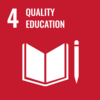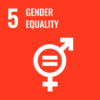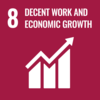Optometry is an emerging field in Pakistan with about 2500-3000 practitioners in the whole country. In a population dense and resource limited country, this is a relatively low percentage. Most of these practitioners have been trained traditionally, lacking flexibility in their clinical approaches. This has resulted in the brunt of eye diseases being referred to Ophthalmologic practices resulting in decrease of primary care practice in Optometry.
Opposed to this lack of practice, at least 6 main universities of the country are now offering Bachelors in Optometry as exit degrees, hence there is a need for standardization of clinical skills in the field to secure job markets for these students and provide state of the art primary eye care.
Adaptive expertise refers to how individuals exercise their knowledge in different scenarios. This is a way of cognitive enhancement of particular use in clinical education as a method of training students to adapt to unprecedented situations and provide personalized healthcare.
Keeping this is mind, The University of Faisalabad have developed an adaptive expertise curriculum for the clinical years of Doctor of Optometry degree in an all-female institute, to empower students and enrich their knowledge.



